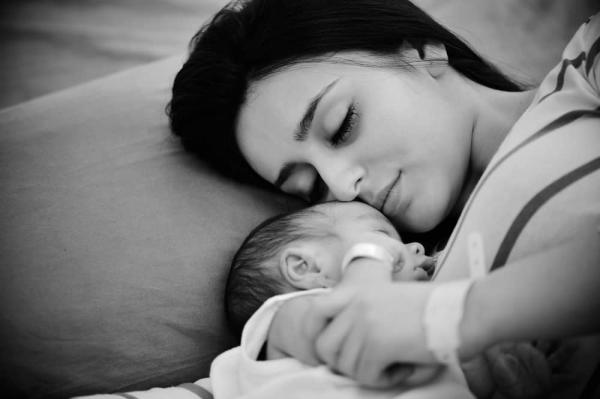
Nearly 14 years ago, when I entered the hospital for the first time to have our oldest son, I thought I knew everything I needed to know about giving birth. I'd read the predominant book of the day on pregnancy. I'd combed over hundreds of articles. I had the wise counsel of my mother and sisters. I was ready to face whatever came my way.
Shortly after I was admitted, I was assigned a room, given an epidural (something my mother and sisters insisted I would want) and began the long, drawn-out process of labor. The next 25 hours were the most intensely difficult hours of my life. I couldn't eat. I couldn't sleep. I couldn't leave my bed. I remember terrible nausea, dry heaving, stomach cramping, pleading to God it would end. Doctors did their best to help the labor progress, but nothing worked.
After an entire day of what felt like torture, the news came that my baby's oxygen levels were dangerously low. A Cesarean section was necessary. I was devastated. That was the one chapter I hadn't read, the one subject I never studied. I believed I was a perfectly healthy and capable woman. There was no way I would have a C-section. I knew Cesarean birth was a negative thing to many people, and I'd adopted that same attitude. So, when it happened to me, I didn't know how to react.
After the birth, I learned that my anatomy prevented me from being able to have a child naturally. In addition to this news, I also learned that I am one of the one percent of women who does not have the biological means to produce milk. My life turned upside down. As a woman, I felt completely broken. I could not do the two things so many women used to define themselves as mothers.
I beat myself up for my inability to be the mother I thought I should be, and to make matters worse, society bullied me as well. Others judged me because I did not try for a natural birth with my second child. I chose to listen to the counsel of my doctor instead. As I sat among mothers who breastfed, pulling out a bottle, I saw the silent stares of judgment, the whispers. I felt ashamed for my inability to do what they could do. For years, I felt like I was less of a mother for not "birthing" my children and depending on a bottle.
It took me many years to understand that how our children come into the world doesn't really matter. What matters is that we brought them here. I suffered the same long nine months that every other mother did. I experienced every move, every hiccup, every kick. And whether children are bottle-fed or breast-fed, it doesn't really matter. They are fed. Many babies around the world are neglected and left to starve to death, but my children are thriving. They are thriving because they have a mother who loves them, who sacrifices for them and who understands what matters.
Being a mother is so much more than giving birth and providing milk. A good mother provides a good, well-balanced life.
I have had five Cesarean sections, and I have five beautiful children as a result. I am grateful for the modern technology that allowed me to be a mother and gave me the opportunity to have healthy babies while being safe and healthy myself. I am indebted to scientists who worked tirelessly to create a baby formula that is as close to a mother's milk as possible. They fed my babies when I could not.
I appreciate those mothers who encouraged me and helped me understand that motherhood is not defined by one single moment at birth or by what a baby eats for the first year of his life. Motherhood is defined by the many moments that make up the days, the hours and the minutes - the moments that add up to years of goodness.
My children are happy, healthy and thriving. They are witty, intelligent and respectful. They are kind, honest and giving. They are defined by their actions, by what they do and by who they are. My personal relationship with each of them helps teach them the things they need to be good people.
Mothers, do not let society define you by how you give birth or by the choices you make with a bottle. And for goodness sake, don't be the person who defines others. We are better than that. We all try to make the best choices for our children in the best ways we know how. Nontraditional parenting does not mean we love our children any less - that we are "less than" other mothers.
In the end, it is not the way our children are born that determines their destiny. It is how our children choose to live - and that, my friends, is largely determined by the way we teach them in the many precious moments that come after birth.

